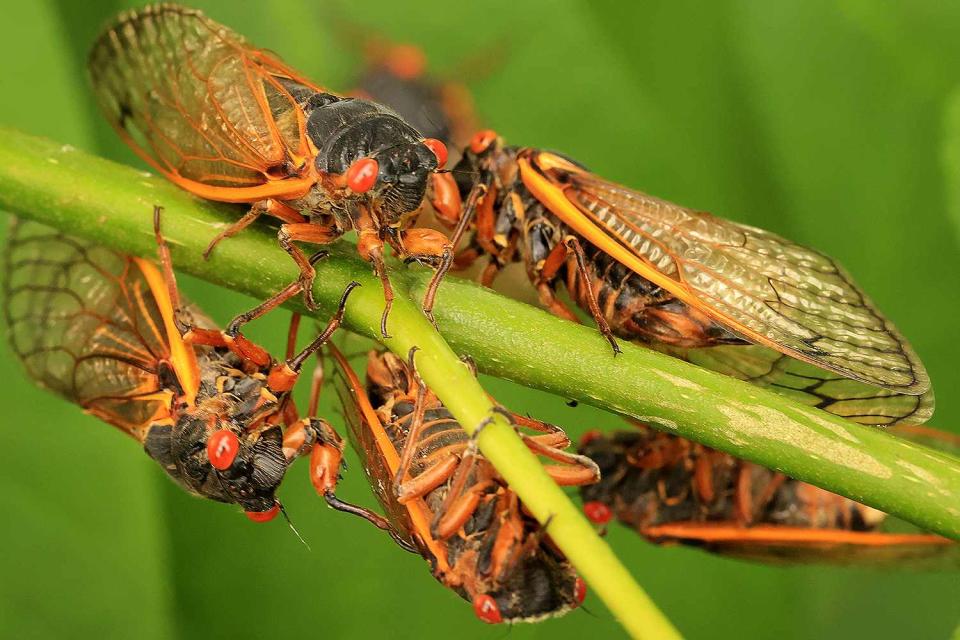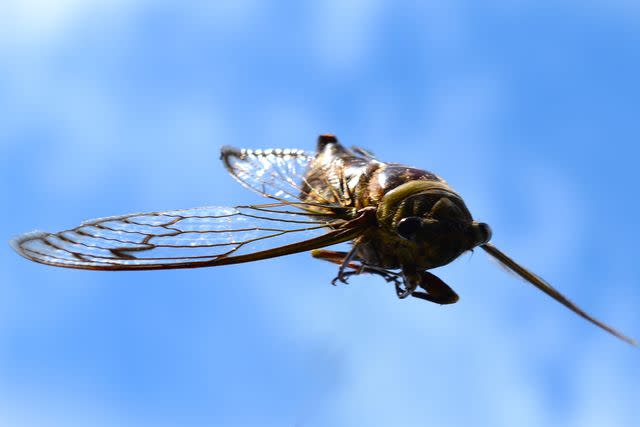Is That a Siren or a Cicada? Police in South Carolina Say They've Gotten Lots of Confused Calls
"People were curious and did not know who else to call," Newberry County Sheriff Lee Foster tells PEOPLE

The cicada apocalypse that was promised to invade the U.S this spring courtesy of a rare double brood has caused so much literal commotion in South Carolina that residents have started calling the police.
In Newberry County, residents are calling authorities to complain that the influx of cicadas is so loud that it mimics a "noise in the air that sounds like a siren, or a whine, or a roar,” according to a message posted to the Newberry County Facebook page.
Newberry County Sheriff Lee Foster confirms to PEOPLE that residents have "called about the noise in the air."
And while some people did think it sounded like a siren, others had no idea what was going on. So, it's been up to police to inform them.
"People were curious and did not know who else to call," Foster says. "We did not mind telling them what was going on."
Related: Billions of Cicadas Are Coming amid Rare Double Brood — See Where the Bugs Will Be This Spring
“The sound is cicadas. Cicadas are a super family of insects that appear each spring. The nymphs have lived underground for 13-17 years and now this time they are hatching," the department said in their social media post.
Foster goes on to explain that now that they've "started hatching from the ground" they're re-locating to "bushes and trees" while "singing their song."
The good news? "Although to some, the noise is annoying, they pose no danger to humans or pets," police explained on social media.
Never miss a story — sign up for PEOPLE's free daily newsletter to stay up-to-date on the best of what PEOPLE has to offer, from celebrity news to compelling human interest stories.
The cicadas that have emerged this year are Brood XIII — a group of 17-year periodical cicadas — and Brood XIX — a group of 13-year periodical cicadas.
For the first time in 221 years, the two broods will be above ground at the same time, and the groups will also overlap geographically.

Markus Frenzel/Getty
CicadasPEOPLE previously talked to two bug experts about the emergence of the two cicada broods, Dr. Gene Kritsky — the professor emeritus of biology at Mount Saint Joseph University and Steve Nicholls, an entomologist and wildlife filmmaker.
Related: Two Cicada Broods Are Emerging at Once and They 'Will Pee in Jets' on Everything, Study Finds
Dr. Kritsky explains that now is the time that the cicadas will emerge in droves. "We're expecting the periodical cicadas to start emerging in the last week of April at the southern end of their distribution, which is across Northern Louisiana, Northern Mississippi, Northern Alabama, and Georgia. That could happen as early as the last week of April into the first week of May," he said.
According to Nicholls and Dr. Kritsky, the temperature of the soil determines when cicadas will emerge. When soil temps reach 64 degrees Fahrenheit, that’s when the cicadas begin to emerge from the ground.
Added Kritsky, "And the emergence, it's not like all or none; it takes two weeks for all the cicadas to come out in a given location."
For more People news, make sure to sign up for our newsletter!
Read the original article on People.


